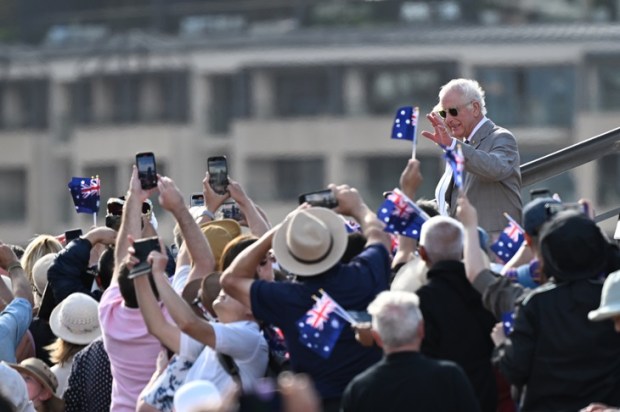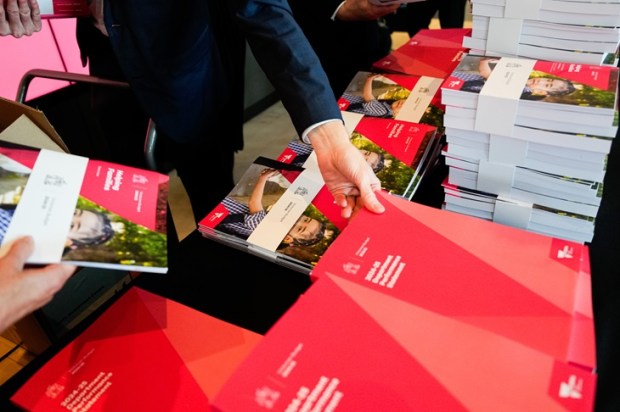For a few days now, I have been thinking about the following sentences:
‘I do not believe that the real life of this nation is to be found either in great luxury hotels and the petty gossip of so-called fashionable suburbs, or in the officialdom of the organised masses. It is to be found in the homes of people who are nameless and unadvertised, and who, whatever their individual religious conviction, see in their children their greatest contribution to the immortality of their race.’
Were they written yesterday, for tomorrow?
No. They were penned in 1942 as part of the Forgotten People speech made by then Australian Prime Minister, Robert Menzies.
The words have travelled the decades well. They remain a useful description of the citizenry of contemporary Australia, as if Menzies had an eyeglass on the future.
In 1942, Menzies understood that the needs of successful societies don’t change much.
People have roamed this earth for millennia – and yet throughout the ages – the basics of human survival remain constant: access to food, safety, and security including those things that keep us healthy – and the ability to keep learning, to prosper, and to evolve from the advances made.
Are we so different today?
It is pragmatism that drives these things. And it was pragmatism that underscored the Menzies era and outcomes. We needed, for example, factories for jobs.
Such desires for the nation ultimately forged the Liberal Party – Menzies’ amalgam of dissatisfied and disillusioned types on the right.
The Liberal Party was the political seed planted and watered by Menzies, a Prime Minister of 19 years.
It is why a recent opinion piece by Victorian Liberal Party leadership member and MLC, Dr Matthew Bach, was such a surprise.
In saying ‘Menzies is dead’, he all but rejected the Menzian philosophies. His apostasy will have saddened many – and not just Liberal conscripts. Millions of Australians adopted Menzies’ faith in individual aspiration. People still sail here to be a part of it.
Menzies’ forgotten people were the ‘middle class’, the ones he described as the people who ‘are envied by those whose benefits are largely obtained by taxing them’ and those who ‘are not rich enough to have individual power’ but ‘are taken for granted by each political party in turn’.
Think of how Victoria’s government cares for these people today – taxing aspiration, offering health and education systems that fail, neglecting the roads they drive on to get to work, dismissing them entirely during Covid-lockdown. It is a government driven by the Vibe Industry and distracted by the bright lights of the Big Business/Big Sport consortiums with contracts in their sights.
Curiously, it would seem Dr Bach wants us to forget the man who remembered the Forgotten People – who have been forgotten all over again.
Menzies’ approach, his words of 81 years ago, resonated with a populace that re-elected him eight times. People understood the values – they could almost touch them. They were the political pepper and salt at the centre of the nation’s kitchen tables.
Distilling those principles into modern policy is a challenge for the current Victorian Liberal Party. But turning from the Menzian sun to face the chill winds blowing in from unfamiliar policy places won’t help a lost party find true north.
Dr Bach also launched quite the broadside on a list of former Liberal Prime Ministers, icons to many: Menzies, Abbott, Turnbull, Morrison, and Malcolm Fraser. He referred to them as a ‘sorry list’, largely for what he considered their lack of economic reform. By contrast, he praised ‘the bold’ John Howard, without apparently recognising that Mr Howard authored ‘The Menzies Era’, saw Sir Robert as an inspiration and role model, and attributed much of his success to transforming Menzian principles into contemporary policy.
In the Victorian Parliament in recent days, Dr Bach talked back some of this rhetoric, even quoting Sir Robert’s views on taxation saying, ‘We are not a party of no taxation, we are a party of better taxation and we are a party of less taxation.’
He also made three references of the term New Liberal – a ‘New Liberal agenda’ and ‘New Liberal thinkers’.
From this, one takes very clearly that Dr Bach considers Menzies’ crucible liberalism as Old Liberal. Again, the challenge is not Old and New, is should only be about great and greater, better and best.
When one reads the Forgotten People speech – it does not tell a fragile or ephemeral tale – but one of enduring values. They simply need fresh application.
The lessons in Menzies’ Forgotten People should be studied by a party in which some think lurching left is the right thing to do. That vote is already well taken and Liberals should not consider it a happy hunting ground.
At a time when living costs are surging, the Forgotten People have never been more forgotten.
They were – they are – the people Sir Bob had in mind when he spoke about the role of government:
‘It is the prime duty of government to encourage enterprise, to provide a climate favourable to its growth, to remember that it is the individual whose energies produce progress, and that all social benefits derive from his efforts.’
If the Liberal Party in Victoria wanted a way forward, it would do well to look back and learn. As a teacher of history, Dr Bach knows well the treasures of the past.

























